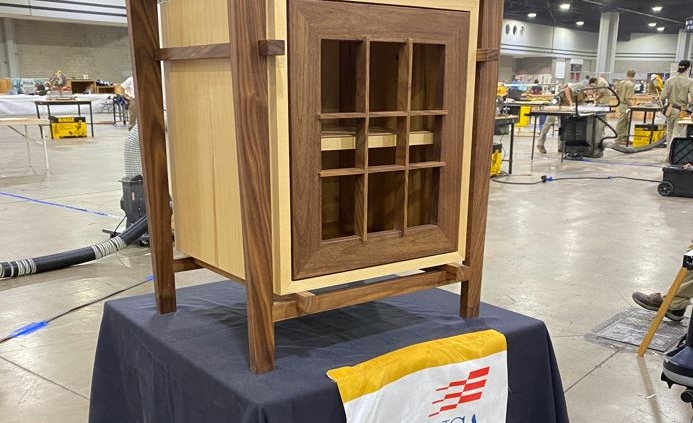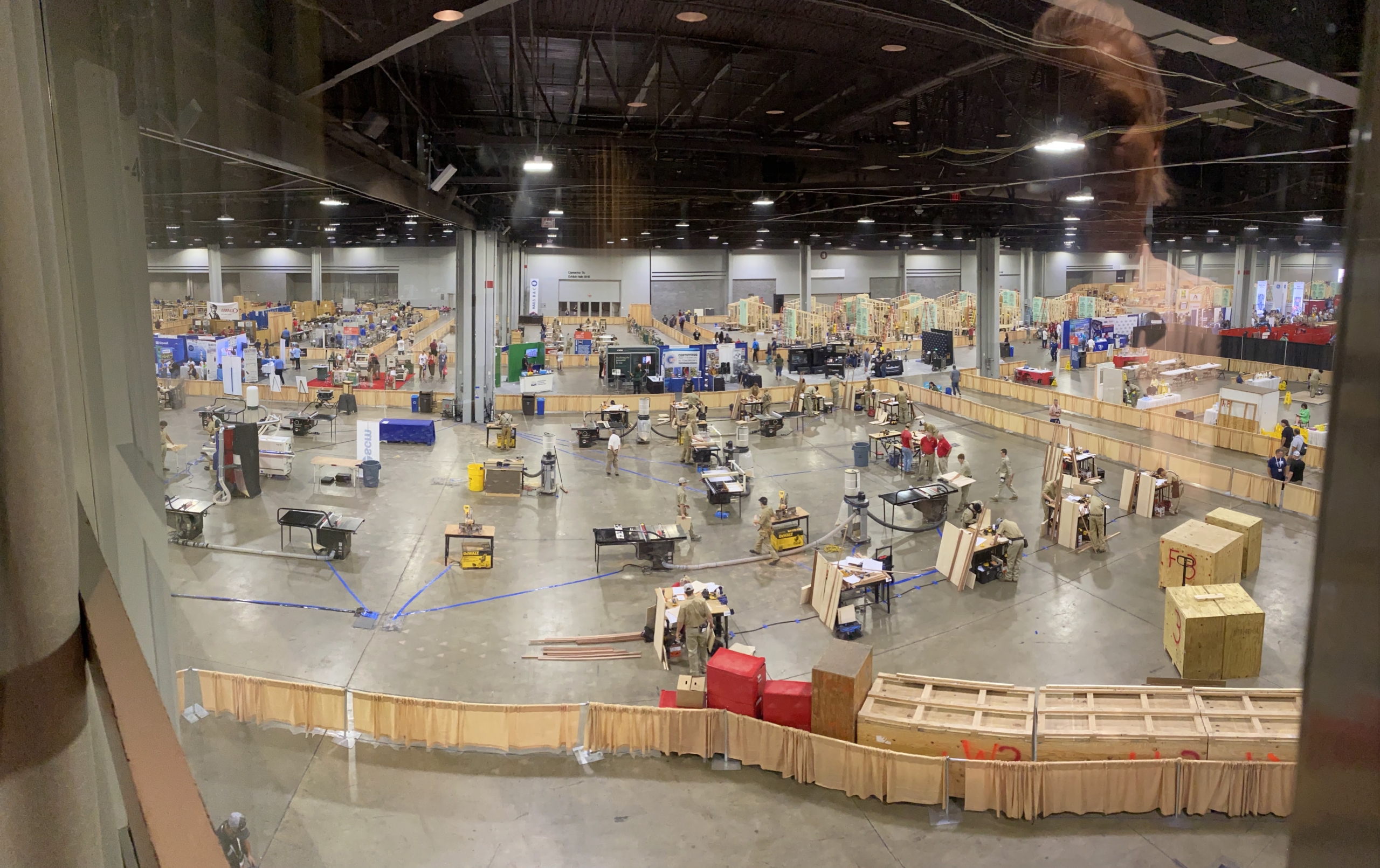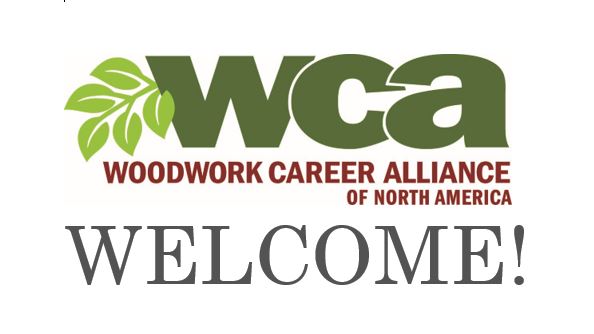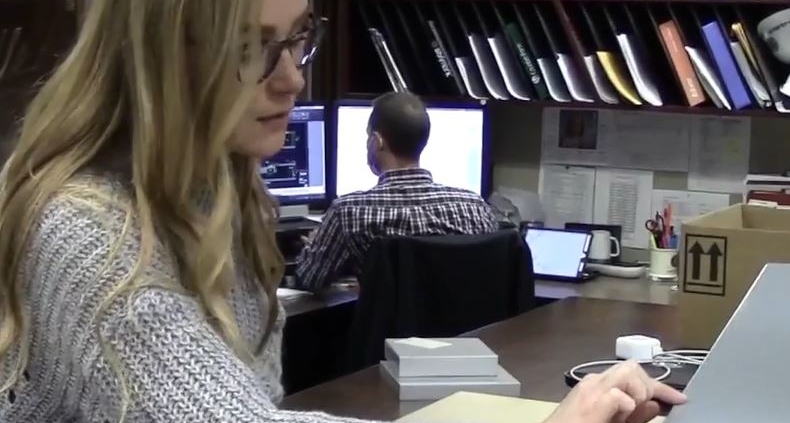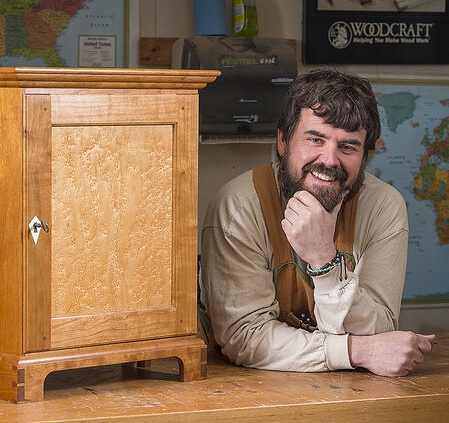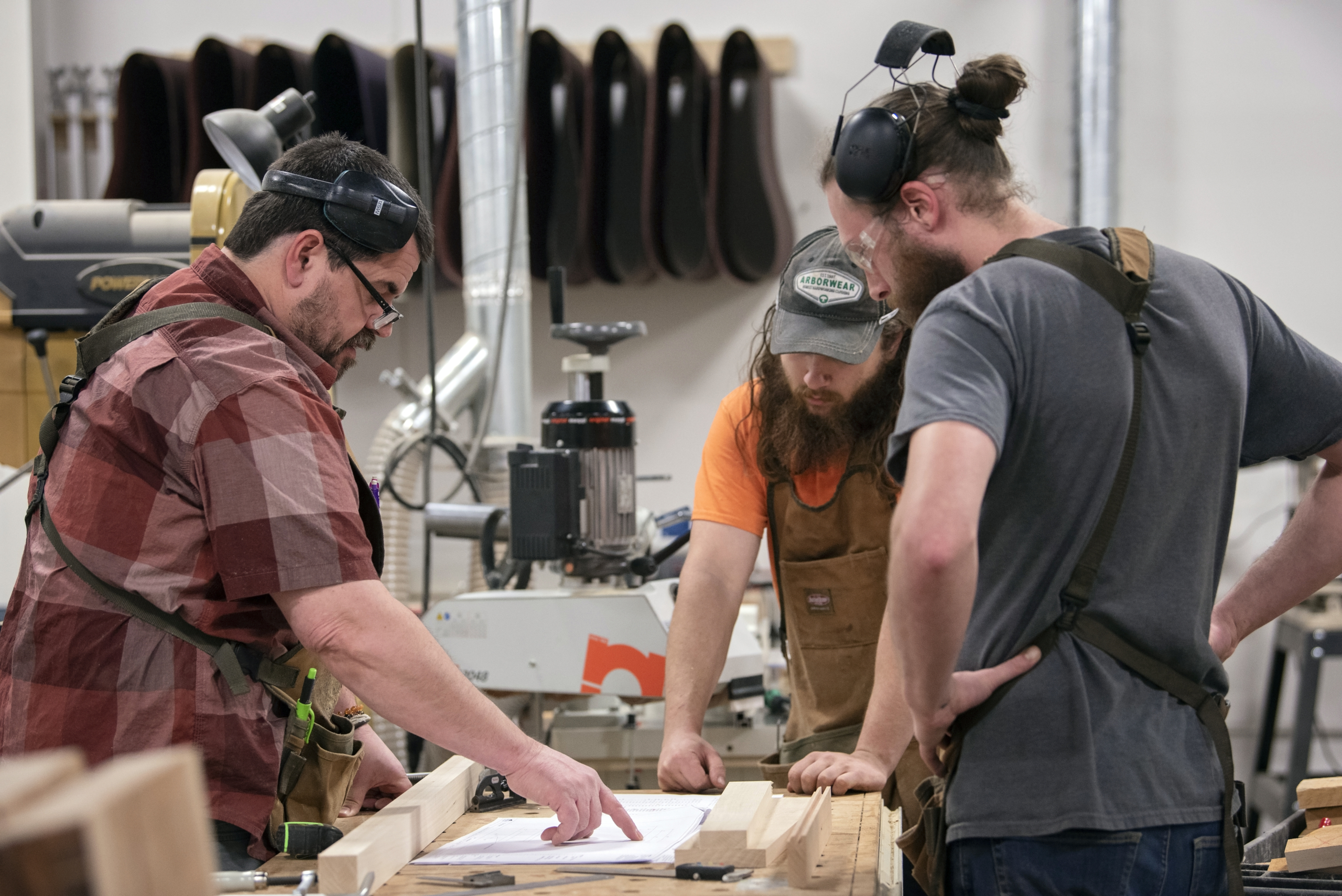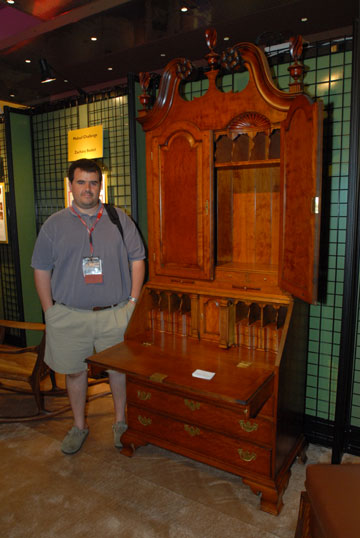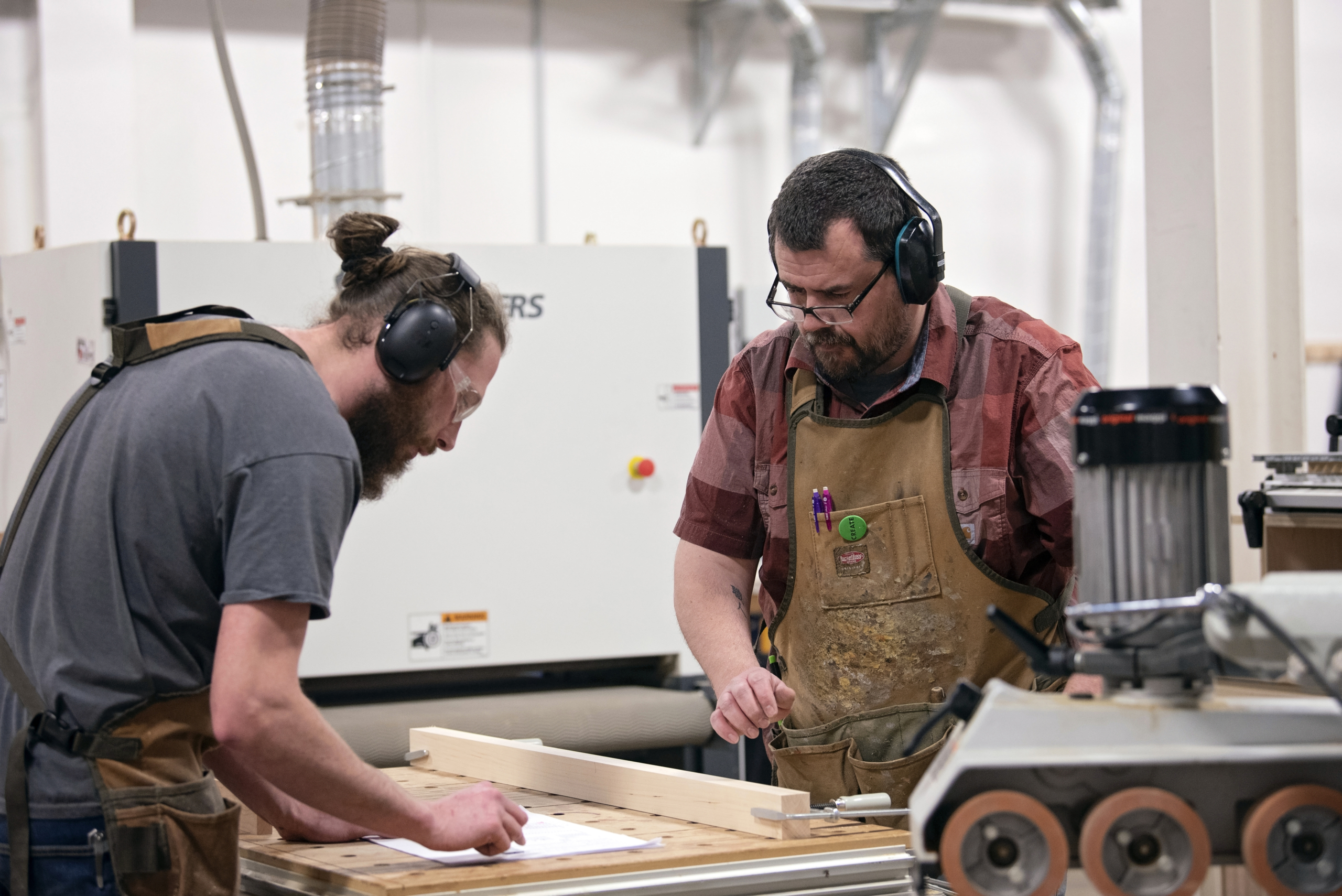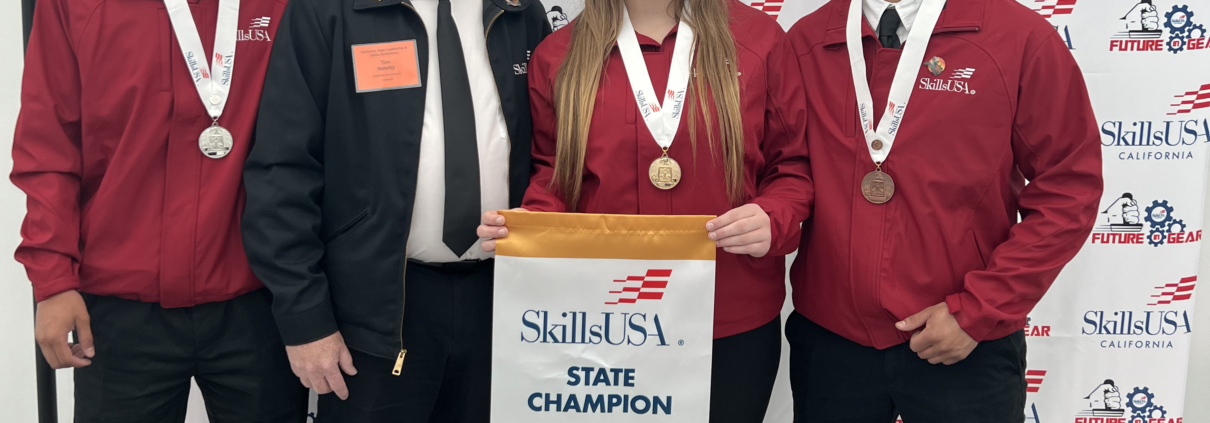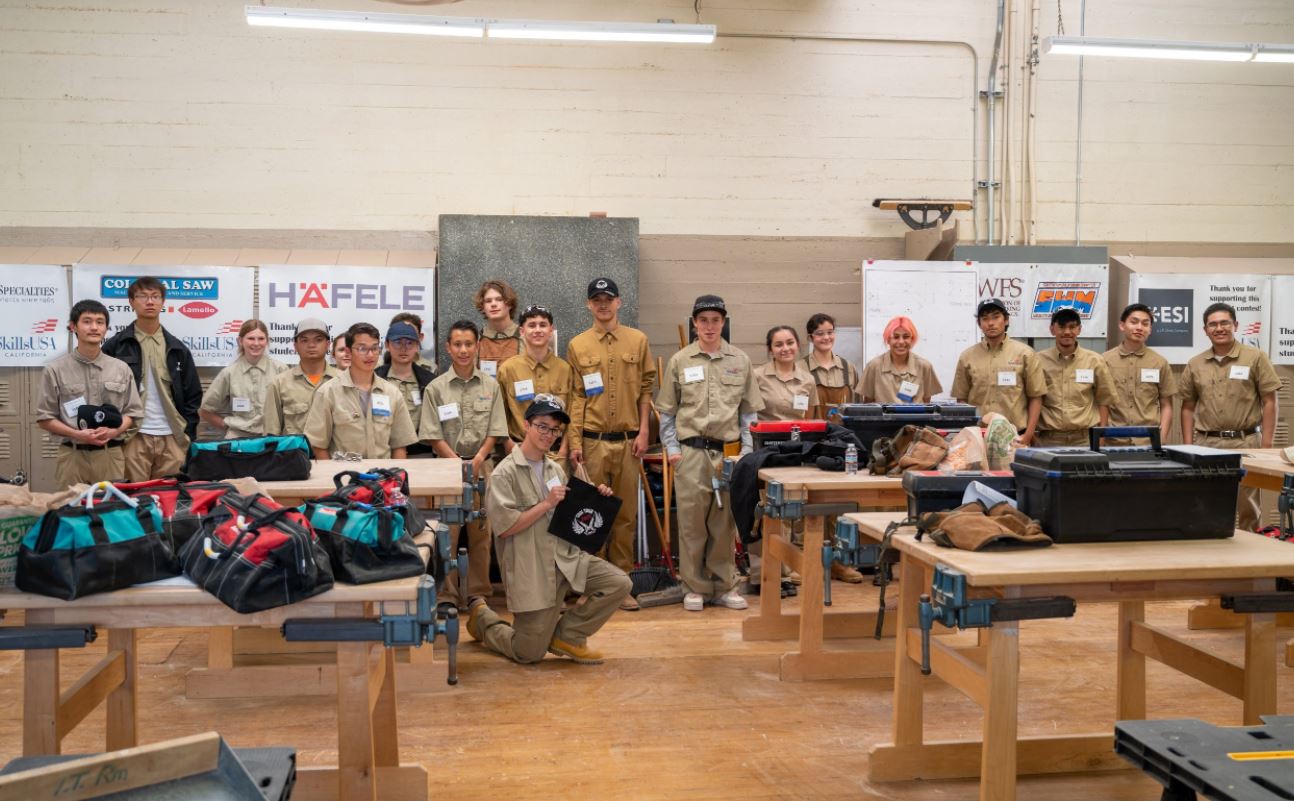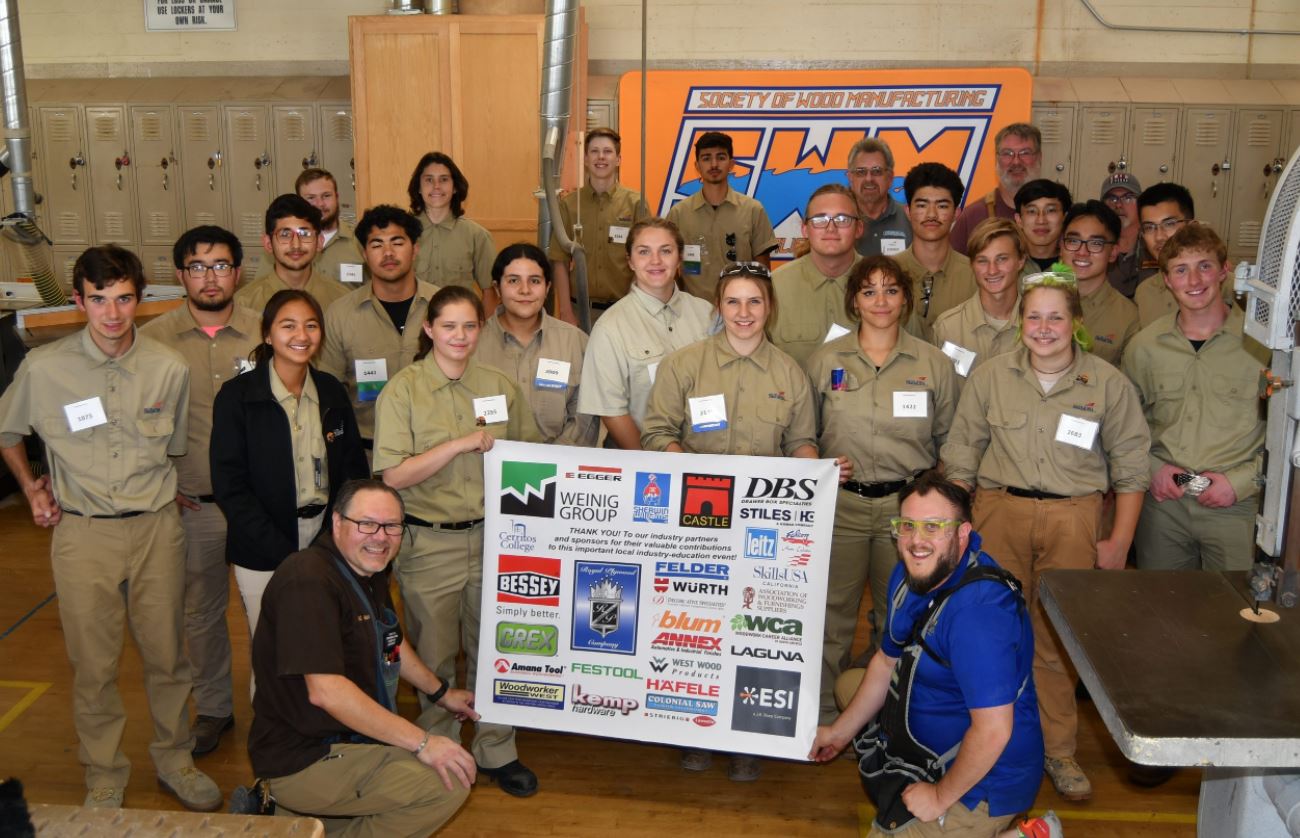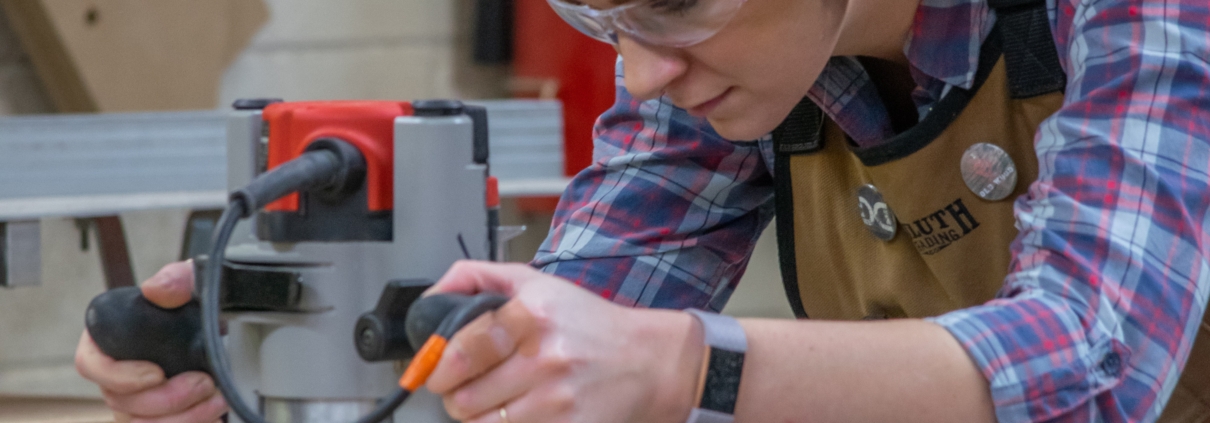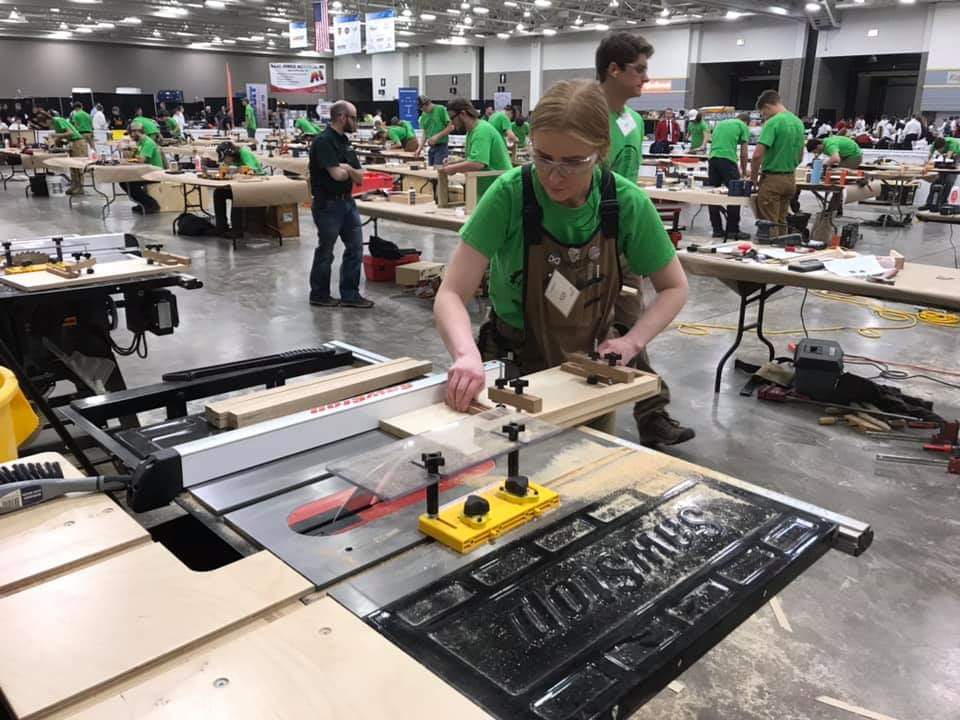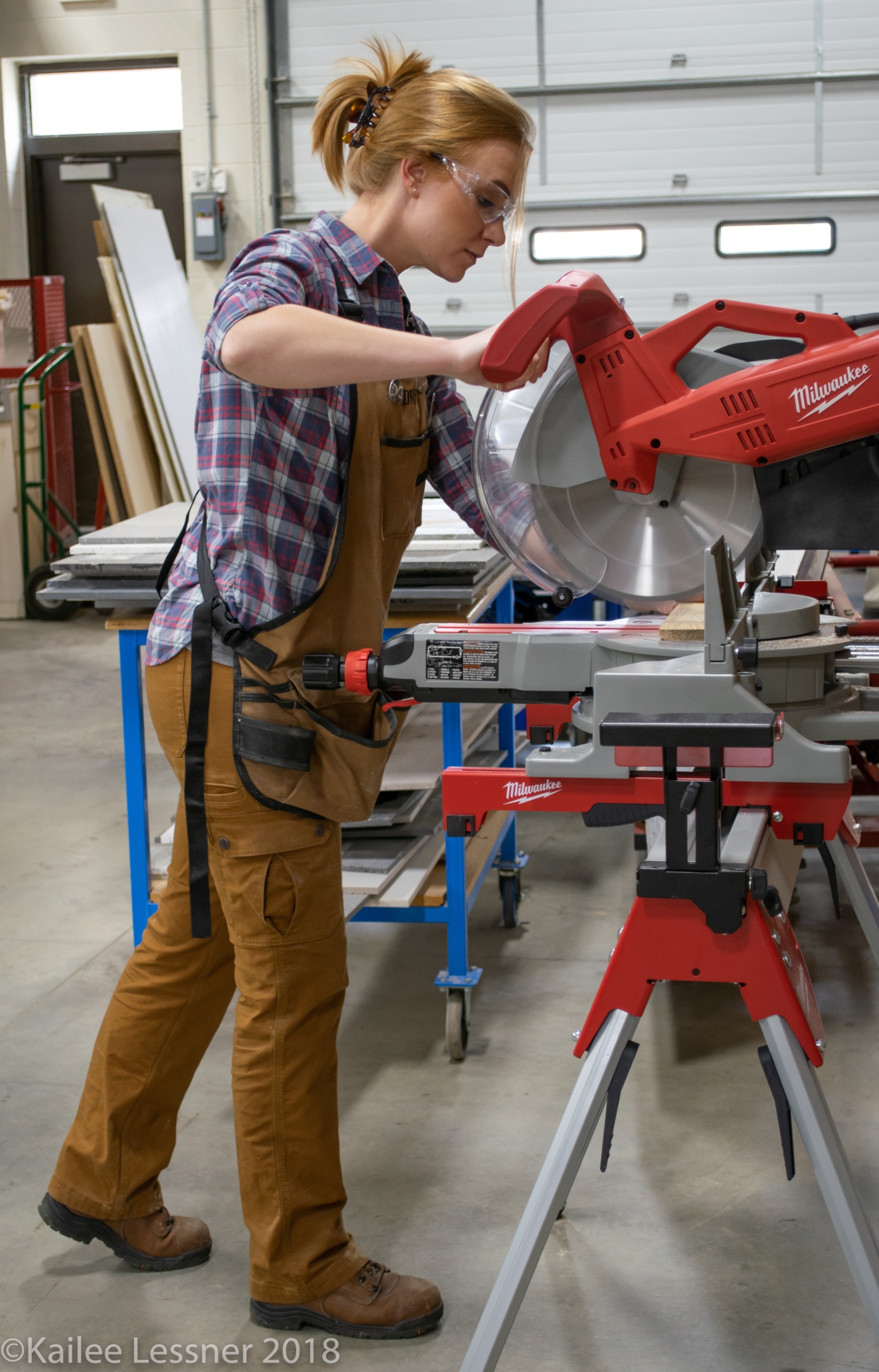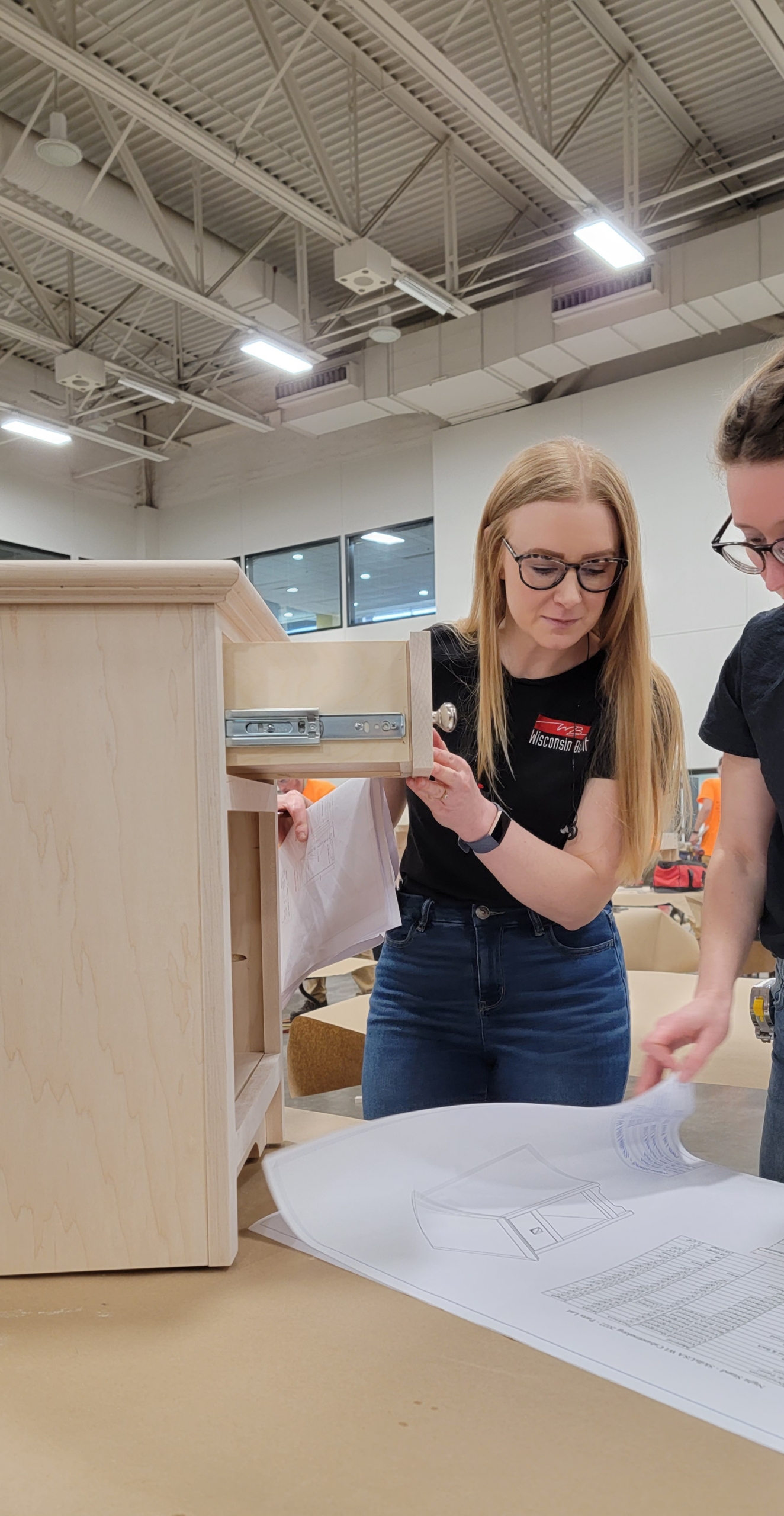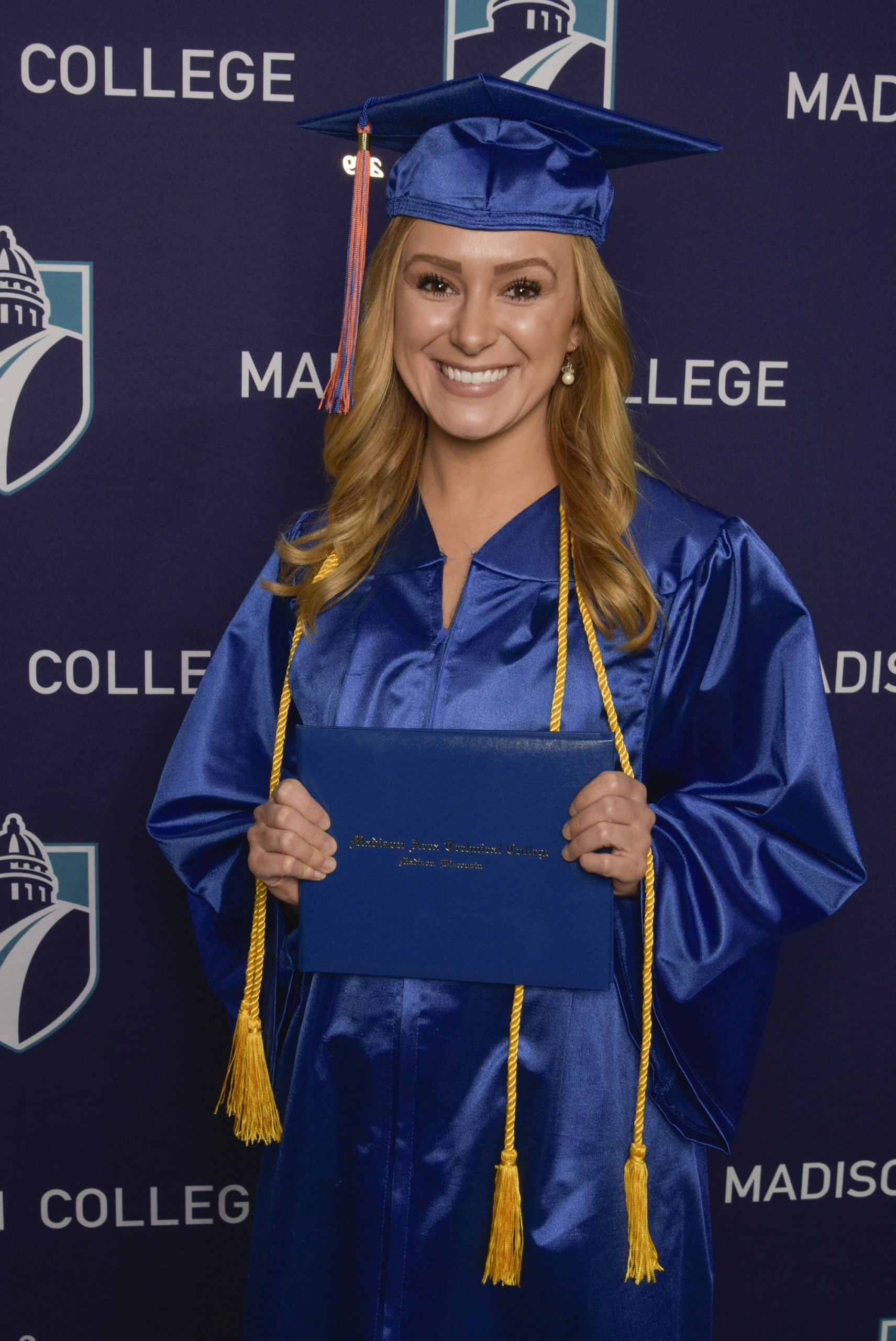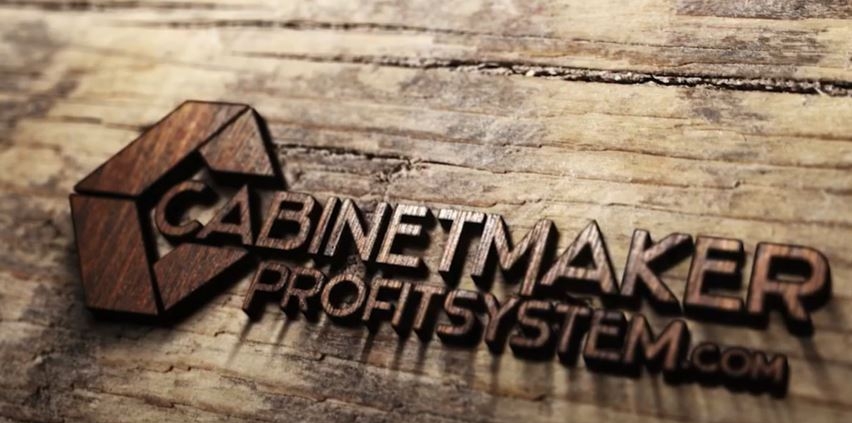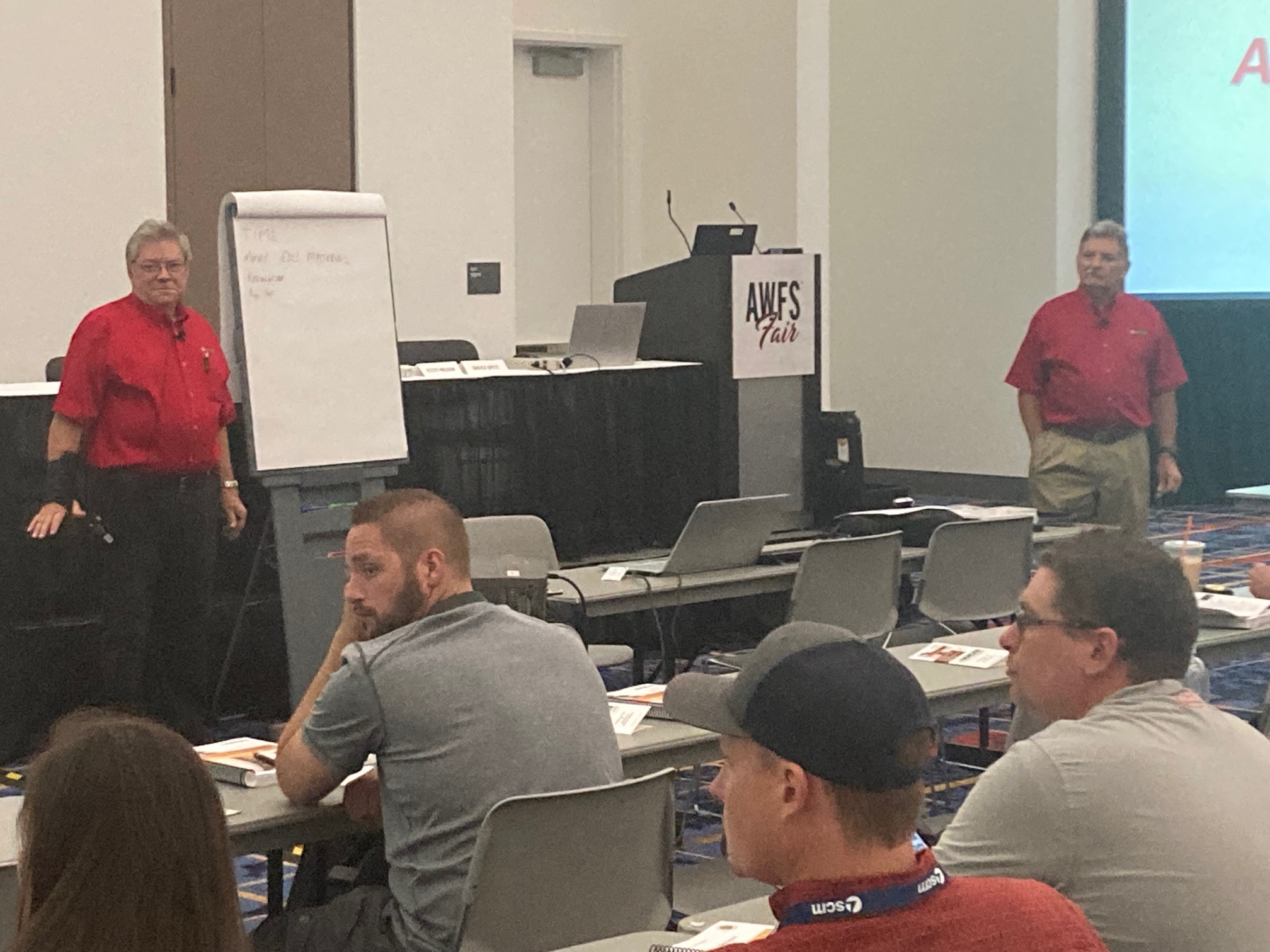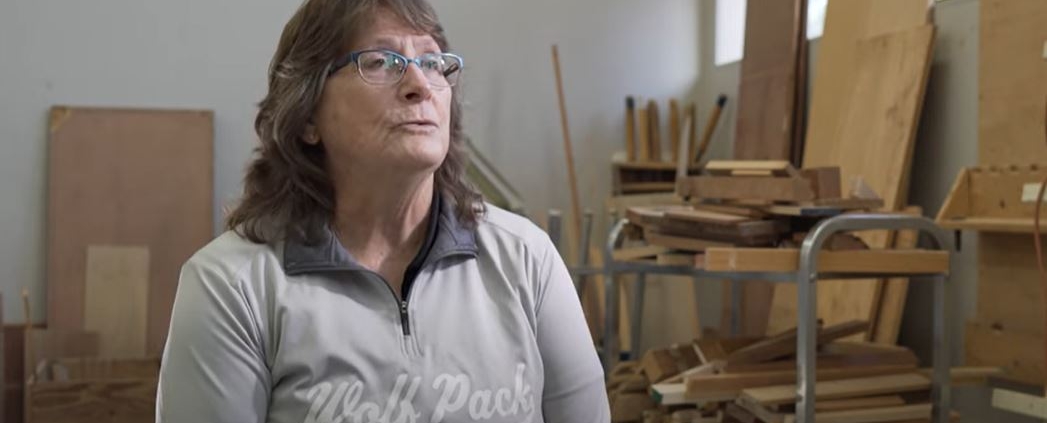Young Cabinetmakers Strut Their Stuff at SkillsUSA
The reverberating buzz of saws cutting wood in the cavernous Georgia World Congress Center was music to Kent Gilchrist’s ears, technical chair of the annual SkillsUSA Cabinetmaking competition.
After having been cancelled in 2020 and held virtually last year, the national SkillsUSA Cabinetmaking competition returned as a live event in June. Some 45 high school students and 10 postsecondary students from across the country travelled to Atlanta to put their woodworking skills to the test. Each of them qualified to participate in the national competition by virtue of being crowned champion of his or her respective state’s contest.
In the end, three high school students and three postsecondary students stood triumphantly on the podium to receive their medals. The 2022 SkillsUSA Cabinetmaking winners included:
Secondary/High School
Gold: Hayden Clarke, College Station High School, College Station, TX
Silver: Joseph Heuberger, Area Career Center, Hammond, IN
Bronze: Clay Beal, West Henderson High School, Hendersonville, NC (WCA EDUcation member school)
Postsecondary/College
Gold: Brigg Edwards, Utah Valley University, Orem, UT
Silver: Duncan McLeslie, Hennepin Tech College, Brooklyn Park, MN
Bronze: Alyssa Bealow, Madison Area Technical College, Madison, WI (WCA EDUcation member school)
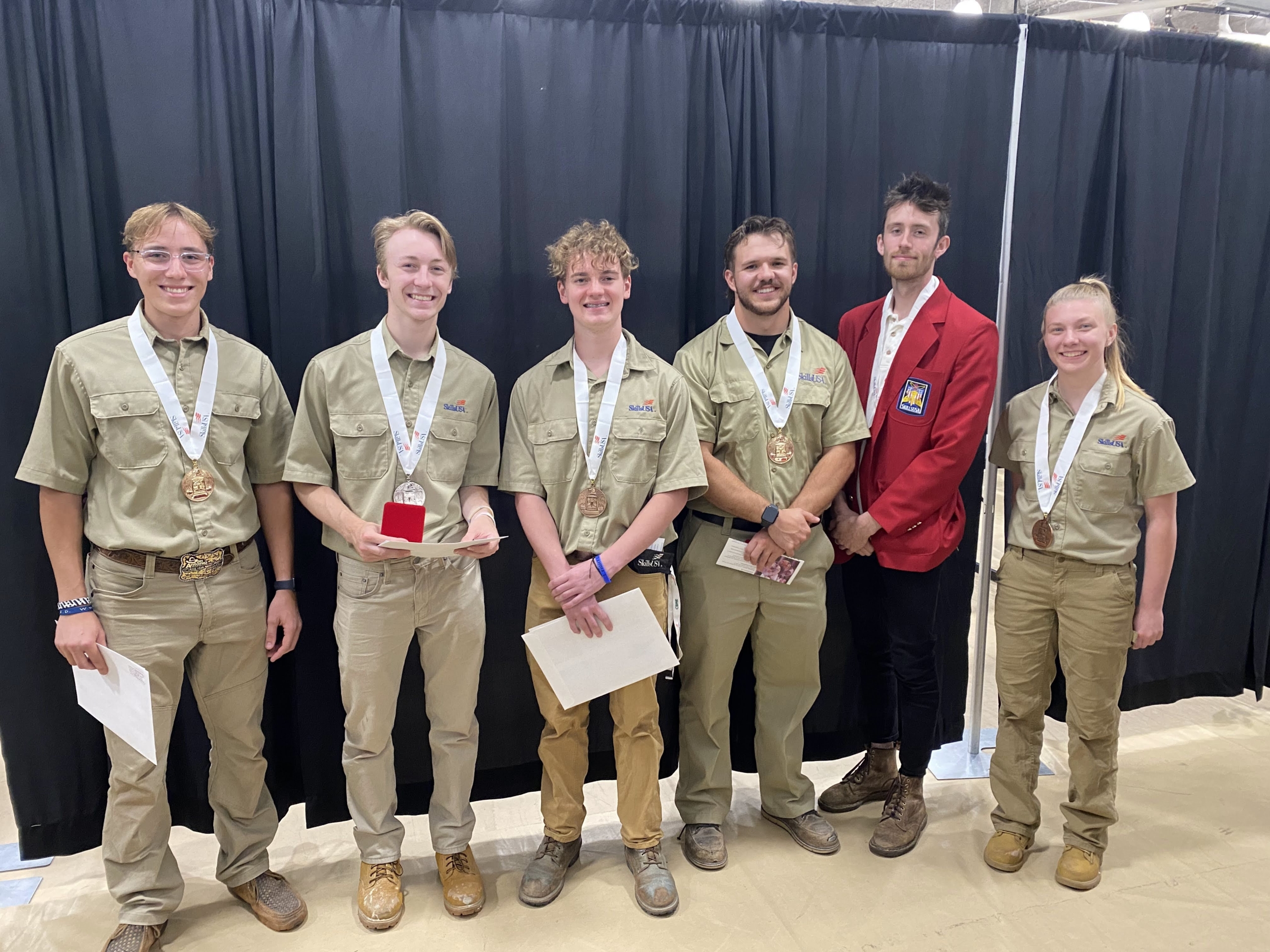
SkillsUSA 2022 medclaists: Hayden Clarke, left, Joseph Hauberger, Clay Beal, Brigg Edwards, Duncan MacLeslie, and Alyssa Buelow.
“All-in-all it was a very positive experience,” Gilchrist said. “I think the students were excited to be back together again. Some of them competed in the virtual contest last year and now they are back together and competing live. You could tell that they really enjoyed being back together and being on a live stage with people watching them.”
The SkillsUSA Project
Gilchrist, a member of the WCA Board of Directors, has been involved with SkillsUSA for approximately 20 years as a member of the Architectural Woodwork Institute’s (AWI) SkillsUSA Committee. During the past 10 years he has pulled double duty by also serving directly with SkillsUSA as technical chairman of the cabinetmaking competition.
“The AWI SkillsUSA Committee is made up of industry professional who design the project for the contest and determine what tools, machinery, and techniques will be used to build it,” Gilchrist said. “We strive to design the project to match what industry is looking for in employees. We take into consideration what industry wants from an employee — the skills they need, and the machines and tools they use. We also look at the WCA Skill Standards as a guideline for the abilities that the students need and the expectations that we have for judging their performance at SkillsUSA.”
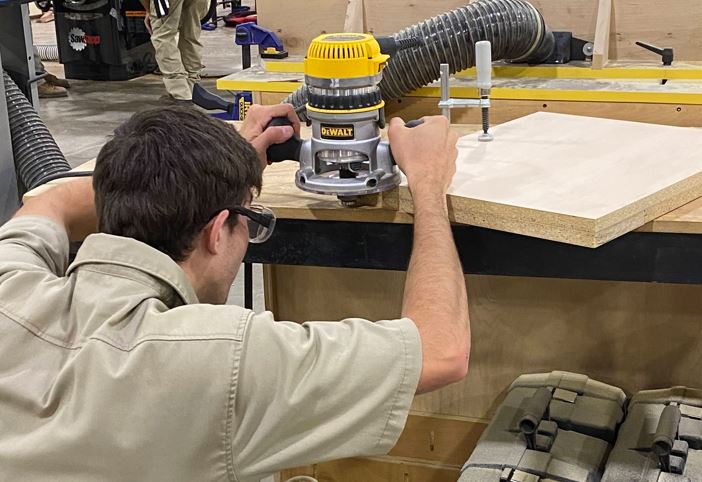 Gilchrist described this year’s project as an end table that included a cabinet with a skeleton frame. “It had contrasting solid wood and a top, with contrasting core material with a contrasting solid edge around it. There were lots of dadoes and half-lap joinery in solid wood.
Gilchrist described this year’s project as an end table that included a cabinet with a skeleton frame. “It had contrasting solid wood and a top, with contrasting core material with a contrasting solid edge around it. There were lots of dadoes and half-lap joinery in solid wood.
“It was a challenging project from a number of perspectives because of all of the joinery involved and understanding the sequence of events that had to take place, how to read the drawings, and so forth,” Gilchrist continued. “I spoke to some of the advisors who were brand new to SkillsUSA and they were excited about being there and really appreciated how much more interesting this contest is than others they have been involved with. They start to understand more about what they should be teaching. One of our goals is to show schools what industry is looking for.”
Students had 8.5 hours to complete their project. Whereas some rose to the challenge, others buckled under the pressure of performing before a live audience with the added stress of a time limit.
Industry Suppliers Step Up to the Plate
The challenges were not limited to the student contestants. The cabinetmaking competition organizers faced obstacles as well.
“It was obviously a challenge having not being able to be in person together for the last two years,” Gilchrist said. “We experienced some unexpected challenges, some logistical and some related to finding replacements for some of the suppliers who decided not to return this year. But with every change comes opportunity and our team came through. We made new connections and brought in some new sponsors to our contest. Grizzly Industrial is now part of the contest and is very much interested in participating more in the future. SCM participated by providing the edgebander and taking part in the student orientation.
“One of the biggest changes was with the joinery the students used. Colonial Saw provided us with six Lamello Zeta P2 biscuit joiners. Another new sponsor, Rockler Woodworking, provided dust collection for the machines.”
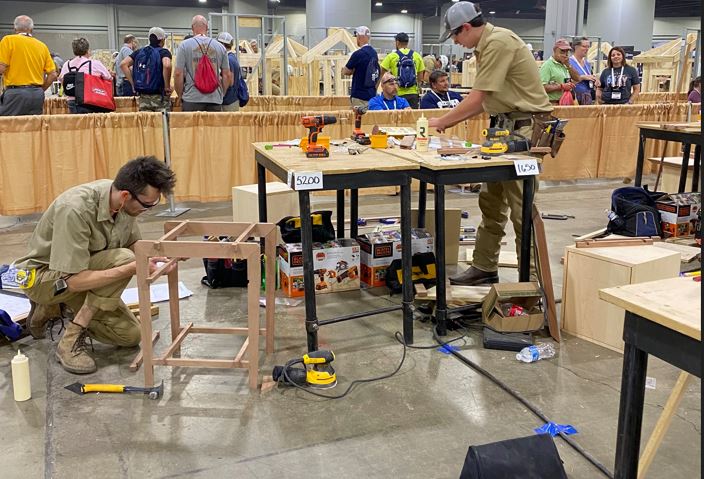 2022 SkillsUSA Cabinetmaking Competition Contributors
2022 SkillsUSA Cabinetmaking Competition Contributors
American Packaging
Blum
Boyce Highlands
Darlington Veneer
DeWalt Power Tools
Flexible Materials
Grizzly Industrial
Hafele
Irwin Industrial Tools
Lamello/Colonial Saw
Richelieu
Rockler Woodworking
Rugby Architectural Building Products
Sawstop
SCM North America
Woodwork Careeer Alliance of North America
2022 SkillsUSA Cabinetmaking Competition Committee
Kent Gilchrist, Fremont Interiors, SkillsUSA technical chair/AWI SkillsUSA committee member
Kristine Cox, Rowland Woodworking, AWI SkillsUSA committee chair
Tony Aubin, Aubin Woodworking, AWI SkillsUSA committee member
Ted Robinson, Technique Manufacturing, AWI SkillsUSA committee member
John Volpe, Volpe Millwork, AWI SkillsUSA Committee member
More About SkillsUSA
SkillsUSA’s National Leadership and Skills Conference is the annual showcase for the best career and technical education students in the nation. This multi-faceted convention features the SkillsUSA Championships. where state champions from across the nation compete head-to-head for bronze, silver and gold medals in over 100 different trade, technical and leadership competitions.
Cabinetmaking was one of 16 manufacturing competitions at SkillsUSA held June 22-23, 2022, in Atlanta. There were 107 student SkillsUSA contests, each held with the help of industry, trade associations and labor. More than 6,500 students competed. They were supported by nearly 2,000 judges and contest organizers.
The competition and meeting space occupied 1.79 million square feet of the Georgia World Congress Center, equivalent to 31 football fields or 41 acres.
SkillsUSA will return to Atlanta June 19-23, 2023. Learn more at SkillsUSA.org.

